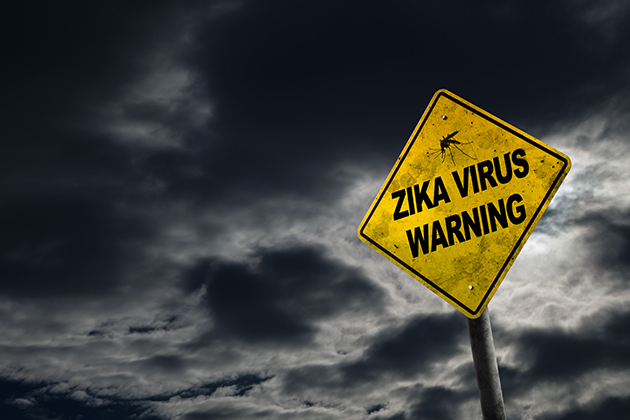
Photo: Getty Images
By now, you’ve heard of the Zika virus. Transmitted by mosquito bite or during sex, the virus causes fever, rash, joint pain, and conjunctivitis, and pregnant women risk spreading the virus — which can cause serious birth defects — to their unborn children. In other words, it’s not the kind of thing you want anywhere near you, let alone at your wedding.
But because the Zika virus is prevalent in some of the most popular spots for destination weddings and tropical honeymoons — think: Aruba, Jamaica, Puerto Rico, Brazil, St. Lucia, Costa Rica, and even the U.S. Virgin Islands — you could be contending with this unpleasant reality soon enough.
Of course, if you’re recently engaged and haven’t yet selected the location of your destination wedding or honeymoon, the smartest way to sidestep the Zika virus is to avoid packing your bags for an infected area. You can see a complete list of where the Zika virus has been identified, and where it is most prevalent, on the Center For Disease Control’s website, here. As you’ll see, those areas include South America, Central America, the Caribbean, and French Polynesia.
If your heart is set on hosting your destination wedding in say, Jamaica, however, there are steps you can take to ensure the safety of your guests. First, inform your guests that you’ve selected a destination that’s been flagged as a Zika virus area. The perfect place? Your wedding website, where you can link to information your guests will find valuable, such as a description of the virus, it’s warning signs, and more.
See More: The Best Honeymoon Resorts in the U.S. and Canada
Next, pack plenty of DEET insect repellant, which is safe for pregnant women and nursing mothers to use, suggests Oluwatosin Goje, M.D. at the Cleveland Clinic’s Center for Specialized Women’s Health and Obstetrics. If you’re making welcome bags, slip a spray bottle — more for families — into each bag, with a note reminding guests to cover their exposed skin before they head outside.
And while we know you booked your beachside resort so that you could exchange vows with your toes in the sand, Goje encourages you to keep your ceremony and reception indoors whenever possible. The air conditioning — and the walls, of course — are your best bets for keeping mosquitos from crashing your wedding. If you opt for a partially-open space, such as an outdoor patio, ask your venue if they can hang mosquito netting to enclose the area without losing the fresh air or gorgeous views.
The same rules apply for your honeymoon, Goje says: Slather yourself in DEET insect repellant, and whenever possible, avoid open-air areas where you could be easily bitten by mosquitos. But beyond that, Goje recommends that couples schedule preconception counseling with their primary health provider. Why? Because if you plan to get pregnant on the honeymoon or soon after, traveling to a Zika area could impact your pregnancy.
See More: The Top 10 Honeymoon Resorts in Hawaii
If you travel to an area known to have the Zika virus, Goje recommends you wait at least eight to 12 weeks to before attempting to conceive. According to Goje, about 80 percent of people with the Zika virus never present any symptoms, and therefore may not be aware they have it. That’s why it’s best to wait, no matter what.
Of course, you can always visit your primary care doctor when you return to determine whether you’re a carrier for the Zika virus. With a clean bill of health, you could begin sooner. (Just ask your doctor first.) But if you’re diagnosed, unprotected sex is a no-go for at least six months, Goje says. That goes for your groom, too, because he can pass along the virus to you through sex.
Finally, if you present any of the Zika virus symptoms — which can include fever, chills, red eyes, joint pains, and headaches — within two weeks of your destination wedding or honeymoon to a known Zika virus area, you must report to your doctor.
